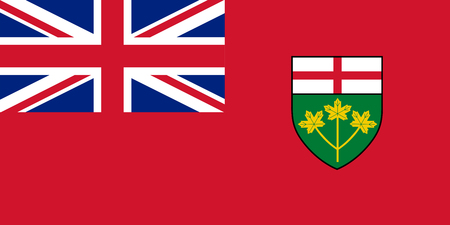Overview of Exotic Pet Insects in the UK
The fascination with exotic pet insects has grown significantly across Britain, reflecting both curiosity and an appreciation for the natural world. From stick insects and praying mantises to tarantulas and beetles, households around the UK are embracing a diverse array of invertebrates as companions. This trend is driven by several factors, including ease of care, educational value, and their relatively low maintenance compared to traditional pets.
Culturally, attitudes towards exotic insects are evolving. While some still associate these creatures with fear or discomfort, there is increasing public interest in conservation and responsible animal keeping. British enthusiasts often participate in insect fairs, educational workshops, and online communities dedicated to sharing knowledge and best practices for insect husbandry. The perception of exotic insects as fascinating rather than frightening is gradually becoming mainstream, especially among younger generations interested in biodiversity.
The table below highlights some of the most popular exotic pet insects kept in British homes:
| Species | Common Use | Popularity Level |
|---|---|---|
| Stick Insect (Carausius morosus) | Educational, Low Maintenance | Very High |
| Praying Mantis (Sphodromantis viridis) | Observation, Hobbyist Breeding | High |
| Tarantula (Grammostola rosea) | Exhibition, Collector’s Pet | Moderate |
| Giant African Millipede (Archispirostreptus gigas) | Display, Educational Events | Rising |
| Bumblebee Millipede (Anadenobolus monilicornis) | Beginner Pet, Classroom Use | Growing |
This growing popularity necessitates a clear understanding of legal regulations and ethical considerations specific to the UK context, ensuring that both owners and their exotic pets can thrive responsibly within society.
2. Relevant UK Legal Frameworks
Understanding the legal landscape is crucial for anyone interested in keeping exotic pet insects in the UK. Several key pieces of legislation govern the import, ownership, and trade of these animals to ensure both public safety and environmental protection. The most notable laws include the Wildlife and Countryside Act 1981 and the Convention on International Trade in Endangered Species of Wild Fauna and Flora (CITES) regulations. These frameworks set out clear requirements for individuals and businesses dealing with exotic insects.
Key Legislation Overview
| Legislation | Purpose | Main Provisions Related to Exotic Insects |
|---|---|---|
| Wildlife and Countryside Act 1981 | Protection of native wildlife and control of non-native species | Bans release of non-native or invasive insect species into the wild; regulates keeping certain listed species; requires licences for some activities |
| CITES Regulations (as incorporated into UK law) | Controls international trade in endangered species | Requires permits for import, export, and sale of listed exotic insect species; offences carry significant penalties |
| Animal Welfare Act 2006 | Promotes welfare of animals under human care | Makes owners responsible for meeting insects welfare needs; covers habitat, diet, and health requirements |
| The Invasive Alien Species (Enforcement and Permitting) Order 2019 | Prevents introduction and spread of invasive alien species | Prohibits ownership, breeding, selling, or releasing of listed invasive insect species without a permit |
Importation Requirements
If you wish to import exotic insects into the UK, you must comply with strict border controls. All shipments are subject to inspection by Border Force and may require CITES documentation depending on the species. Failure to present correct paperwork can result in confiscation or prosecution.
Ownership and Trade Obligations
Once within the UK, ownership and commercial trading of exotic insects are regulated by multiple agencies. You should check whether your chosen insect species is subject to any specific restrictions under the Wildlife and Countryside Act or CITES. Trading without proper authorisation—especially involving endangered or controlled species—can lead to heavy fines or imprisonment.
Summary Table: Steps for Legal Compliance
| Step | Description |
|---|---|
| Check Species Status | Verify if the insect is listed under relevant legislation (e.g., invasive, protected, CITES-listed) |
| Obtain Necessary Permits/Licences | Apply for required permissions before importing, keeping, or selling exotic insects |
| Ensure Proper Care Standards | Meet all welfare obligations as per Animal Welfare Act 2006 |
| Avoid Release into Wild | Never release non-native insects into UK ecosystems; this is illegal without explicit authority |
| Maintain Records | Keep accurate records of acquisition, permits, and transactions for legal proof if needed |
Staying informed about these regulations will help ensure your activities remain legal and contribute positively to both animal welfare and biodiversity in the UK.

3. Licensing and Permit Requirements
When keeping exotic pet insects in the UK, it is crucial to understand when licences or permits are required. The need for official documentation depends on several factors including the species of insect, its conservation status, and whether it is considered invasive or protected. For instance, many commonly kept species do not require permits, but certain species listed under the Wildlife and Countryside Act 1981 or CITES (the Convention on International Trade in Endangered Species of Wild Fauna and Flora) will necessitate specific permissions.
When Are Licences or Permits Required?
| Situation | Licence/Permit Required? |
|---|---|
| Keeping native non-protected insects | No |
| Keeping non-native, non-invasive insects | No (unless specified by local authority) |
| Importing/exporting exotic insects | CITES permit may be required |
| Keeping protected or endangered species | Yes – Wildlife licence required |
| Breeding or selling certain species | May require Animal Activities Licence (AAL) |
Application Process and Authorities Involved
The primary authorities responsible for licensing include:
- The Department for Environment, Food & Rural Affairs (DEFRA)
- Your Local Authority’s Animal Licensing Team
- The Animal and Plant Health Agency (APHA)
Steps to Apply for a Licence or Permit
- Identify the species you intend to keep and check if it is listed under any relevant legislation such as CITES or the Wildlife and Countryside Act.
- If a licence is needed, visit the DEFRA website or contact your local council’s animal licensing department for guidance.
- Prepare necessary documentation: proof of secure housing, evidence of expertise in care, and information about the source of the insects.
- Complete the application form provided by the appropriate authority.
- Pay any applicable fees; these can vary depending on the type of licence.
- Your premises may be inspected to ensure compliance with welfare and containment standards.
Practical Compliance Tips
- Keep all paperwork organised and up-to-date for inspections.
- If importing or exporting, always check the latest CITES regulations before proceeding.
- Liaise with reputable breeders or suppliers who provide legal documentation regarding species origin.
This step-by-step approach helps ensure that you meet all British legal requirements for keeping exotic pet insects, protecting both your pets and local biodiversity.
4. Animal Welfare and Husbandry Standards
In the UK, the welfare and ethical treatment of exotic pet insects is guided by both legal requirements and best practice recommendations, primarily overseen by the Department for Environment, Food & Rural Affairs (DEFRA). While insects are not covered in the same way as vertebrate animals under the Animal Welfare Act 2006, responsible ownership is still expected under general animal welfare principles and the Animal Welfare (Licensing of Activities Involving Animals) (England) Regulations 2018. These regulations emphasise the importance of meeting an insect’s biological needs and minimising suffering.
DEFRA Guidance on Insect Care
DEFRA encourages all keepers to ensure that their insects have:
- Appropriate housing that matches their natural habitat as closely as possible
- Suitable environmental conditions, including temperature, humidity, and ventilation
- Adequate nutrition based on species-specific dietary requirements
- Protection from harm, stress, or unnecessary disturbance
Practical Husbandry Advice
Responsible insect husbandry in Britain involves daily care routines and ongoing attention to welfare. The table below summarises key aspects of insect husbandry according to DEFRA recommendations:
| Aspect | Standard Practice |
|---|---|
| Housing | Secure, escape-proof enclosures with substrate suitable for burrowing or climbing; regular cleaning to prevent mould and mites. |
| Temperature & Humidity | Consistent monitoring using thermometers and hygrometers; use of heat mats or misters where appropriate for tropical species. |
| Diet | Provision of fresh food such as fruit, vegetables, or live prey depending on species; supplementation with calcium or vitamins as needed. |
| Enrichment | Addition of hides, branches, or foliage to encourage natural behaviours. |
Ethical Considerations in Pet Insect Keeping
The British approach to keeping exotic pet insects emphasises respect for their intrinsic value and life cycle. Ethical considerations include sourcing insects from reputable breeders rather than wild capture, avoiding release into local ecosystems, and ensuring euthanasia—if required—is carried out humanely. Pet owners are encouraged to continually educate themselves about specific species’ needs and seek advice from specialist societies like the British Tarantula Society or Entomological societies.
Summary
Adhering to British animal welfare expectations for exotic pet insects not only fulfils legal obligations but also promotes ethical stewardship. By following DEFRA guidance and practical husbandry standards, keepers can ensure a high quality of life for their insect pets while fostering public confidence in responsible exotic pet ownership.
5. Ethical Sourcing and Environmental Considerations
Ensuring ethical sourcing of exotic pet insects is a matter of significant concern within the UK. Responsible acquisition not only safeguards animal welfare but also minimises adverse ecological effects. When selecting exotic insects as pets, it is essential to verify their origin and ensure they have been bred or collected legally and sustainably. Importing or purchasing insects from unregulated sources can contribute to habitat destruction, illegal trade, and the decline of wild populations.
Responsible Sourcing Practices
Ethical sourcing involves selecting suppliers who adhere to both UK legal standards and international conventions such as CITES (the Convention on International Trade in Endangered Species). Responsible breeders prioritise captive breeding over wild collection, reducing pressure on natural populations. Before purchasing, prospective keepers should request documentation proving the legal origin of their insects.
Comparing Sourcing Methods
| Sourcing Method | Ecological Impact | Legal Compliance |
|---|---|---|
| Captive-bred | Minimal impact; supports sustainability | Usually compliant with UK regulations |
| Wild-caught (regulated) | Moderate impact; possible risk to populations | Only legal if sourced under strict permits |
| Wild-caught (unregulated) | High impact; threatens biodiversity | Illegal under UK law and CITES |
Preventing Ecological Harm
The release of non-native insect species into the British environment poses a genuine threat to local ecosystems. Exotic species may become invasive, outcompeting native wildlife and disrupting habitats. UK regulations strictly prohibit the deliberate release of non-native species under the Wildlife and Countryside Act 1981. Ethical keepers must take all necessary precautions to prevent accidental escapes by maintaining secure enclosures and following best husbandry practices.
Checklist for Ethical Insect Keeping
- Source insects from reputable, licensed breeders or suppliers.
- Obtain proper documentation confirming legal origin.
- Avoid supporting illegal wildlife trade.
- Ensure enclosures are escape-proof and suitable for each species.
- Never release exotic insects into the wild.
By adopting ethical sourcing practices and being vigilant about environmental considerations, British keepers play a vital role in conserving biodiversity and upholding both legal and moral standards within the exotic pet community.
6. Penalties and Enforcement
Breaching British legal regulations regarding exotic pet insects can lead to significant consequences, both legally and financially. Authorities such as the Animal and Plant Health Agency (APHA), local councils, and law enforcement agencies are responsible for monitoring compliance and taking action against violations. It is crucial for all exotic insect keepers to understand these penalties to avoid legal trouble and uphold ethical standards.
Legal Consequences of Non-Compliance
Failing to adhere to licensing requirements, import/export controls, or animal welfare standards can result in a range of penalties. These may include:
| Offence | Possible Penalties |
|---|---|
| Unlicensed keeping or trading | Fines up to £5,000 per offence; potential confiscation of animals |
| Illegal import/export | Unlimited fines; imprisonment (up to 7 years for serious breaches) |
| Breach of animal welfare laws | Bans on keeping animals; community service; custodial sentences |
Notable Enforcement Cases
To highlight the seriousness of compliance, here are examples of recent enforcement actions:
- In 2021, a Kent resident was fined £2,500 and had their collection seized after importing protected beetle species without proper documentation.
- A London-based trader received a 12-month community order in 2022 for repeatedly selling non-native mantises online without a licence, endangering local ecosystems.
Importance of Compliance
The enforcement landscape in the UK demonstrates that authorities are vigilant about protecting native biodiversity and ensuring animal welfare. Failure to comply not only risks financial loss and reputational damage but also threatens the legal right to keep exotic insects in the future. All keepers are strongly advised to stay updated on legislation, maintain accurate records, and seek professional advice when unsure about regulations.


